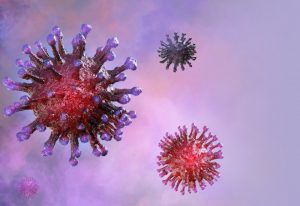Melatonin is one of the most popular supplements in the world. Best known for its role in promoting quality sleep, this natural supplement has a wide range of uses that are not as commonly known. Although it is indeed effective in guiding the circadian rhythm, melatonin can also have positive effects on cell growth, heart health and a variety of other health concerns.
Your Ultimate Guide to Melatonin
 How exactly can melatonin benefit your health, in addition to helping you to sleep? According to Dr. Russell J. Reiter of UT Health San Antonio, this molecule has “a bewildering array of functions.”
How exactly can melatonin benefit your health, in addition to helping you to sleep? According to Dr. Russell J. Reiter of UT Health San Antonio, this molecule has “a bewildering array of functions.”
An international expert on this hormone, Reiter has conducted a lifetime of studies and published hundreds of papers on melatonin. These studies have shown that melatonin has a variety of benefits, including:
- promoting healthy cell growth
- lowering the risk of heart disease
- delaying the decline seen in Alzheimer’s disease and other neurodegenerative diseases
- reducing symptoms in gastrointestinal diseases
- lowering the risk of accidents both on the roads and on the job
- delaying the effects of aging
How can one natural supplement have these effects on the body? The answer lies in the circadian rhythm and its interactions with almost all aspects of human health.
How Melatonin Affects the Body
When our eyes stop sensing light, special areas of our brain release melatonin. This hormone tells our body that it is time for sleep. However, sleep is not just important for rest. It is a time when the body performs critical “housekeeping” tasks. Melatonin is the cue to the body that these tasks can begin.
Melatonin is not just a sleep hormone, but a powerful antioxidant. In the brain, melatonin stimulates the glymphatic system to begin its nightly cleaning, washing metabolic wastes and dangerous chemicals from the delicate tissues of our neurons. This is believed to be the reason that melatonin can prevent or slow the progress of neurodegenerative diseases such as Alzheimer’s. In addition, beginning the day with a “clean” brain is likely the reason that people with high-quality sleep perform better cognitively and have improved memory.
Melatonin also appears to be a signal for our cells to repair DNA from the oxidative stresses of the day. This is critical because damage to DNA can ultimately cause cancer. People who have a dysregulated circadian rhythm are more likely to develop certain types of cancer as a result. This link is so strong that the World Health Organization has called shift work a carcinogen.
The antioxidant effects of melatonin are likely responsible for many of its effects on cardiovascular health. People who work unusual shifts or have sleep disorders are at a significantly higher risk for stroke, heart attack and other cardiovascular diseases. However, there are likely other causes as well. Going without sleep precipitates an increase in cortisol and other stress hormones that can damage our hearts and blood vessels.
Melatonin and sleep can clearly have a sizable effect on human health. However, a new study suggests that this multitasking hormone may also be a powerful weapon in the worldwide fight against viral illnesses.
A New Weapon Against Viruses?
The novel coronavirus COVID-19 is not the first viral disease to sweep the globe. The Spanish influenza pandemic of 1918 had similar effects worldwide. There is also a good chance that other viral illnesses will cause similar pandemics in the future.
New diseases present a unique challenge to public health because we do not have vaccinations and cannot develop medications effectively in the limited time it takes for a virus to spread.

This is following other research finding that melatonin may be an effective way of preventing some of the more dreaded effects of ebola, another feared virus. Although melatonin does not directly kill viruses, it appears to help our immune system respond to them in a more effective manner.
Do You Need More Melatonin?
It is important to remember that we make melatonin naturally. It is an essential part of sleep, metabolism and a variety of necessary functions.
However, modern people have lifestyles that do not support optimal melatonin production. We are exposed to a great deal of light from screens around us, including smartphones and computers. In addition, bright lights outdoors are creating light pollution that can lower melatonin production. For many people, taking a safe and natural melatonin supplement is the best way to get the sleep they need.
It is more important than ever to stay healthy in every way possible. Melatonin is just one way to keep our circadian rhythm on track and to give ourselves a better chance at fighting off the serious diseases sweeping the globe.







